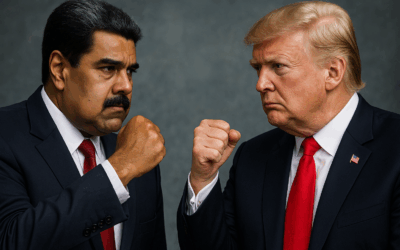
Military

Trump Ally Donates $130M to Cover Military Pay Amid Shutdown
An anonymous ally of Donald Trump quietly stepped in to donate $130 million to the Department of War with the intention of covering U.S. troops’ paychecks during the current government shutdown. The gift came as military service members faced potential delays or interruptions in their paycheck issuance. The donation raises important legal and constitutional questions — and also highlights how the shutdown is affecting critical federal operations. (RELATED NEWS: Trump Orders Military Pay Amid Government Shutdown) What We Know So Far Pentagon spokesman Sean Parnell said in a statement to Fox News Digital: “On October 23, 2025, the Department of War accepted an anonymous donation of $130 million under its general gift acceptance authority. The donation was made on the condition that it be used to offset the cost of Service members’ salaries and benefits. We are grateful for this donor’s assistance after Democrats opted to withhold pay from troops.” Trump himself said the individual had contacted him, saying: “I’d like to contribute personally, because I love the military and I love the country.” He added that he believed the donor did not want recognition and that he would not identify the person unless given permission. Trump says a donor friend wrote him a check today for $130 MILLION to help pay the military during the Schumer shutdown. “He doesn’t want the recognition. THAT is what I call a patriot!” Amazing 🇺🇸 pic.twitter.com/Bs8yeUR3e7 — Sara Rose 🇺🇸🌹 (@saras76) October 23, 2025 The Legal and Constitutional Snag Despite the generous contribution, significant legal barriers remain. According to experts, only Congress holds the power under Article I of the U.S. Constitution to appropriate funds for federal employee salaries — including those in the military. In other words, while the funds were accepted, their actual use to cover troops’ pay may require further congressional action. The Department of War can accept donations for certain purposes, such as scholarships, museums, memorials, or assistance for wounded service members, but it may not unilaterally redirect donated funds toward covering salaries under current law. The only way around this restriction would be for Congress to reclassify troops’ pay as mandatory spending, which doesn’t require annual appropriations, or otherwise change the law. Why This Matters This situation signals how deeply the shutdown is impacting critical functions. The fact that a private individual felt compelled to intervene for troops’ pay underscores how close to the edge some military financial operations are. It raises broader questions about the role of private donations in funding government operations. If an individual can donate hundreds of millions to cover military pay, what precedent does that set? Moreover, how will oversight, transparency, and accountability work in such cases? It reminds us that even generous acts may hit institutional and legal walls. Without congressional authorization, the donor’s intent may not translate into actual disbursement. That gap creates uncertainty for service members who are counting on timely pay and benefits. (MORE NEWS: Trump’s East Wing Demolition and Ballroom Plan Explained) What Comes Next Congress must act if the funds are to be used for their intended purpose. If lawmakers do not move quickly, service members risk continued delays even with the donation in hand. Meanwhile, the Department of War must track the donation, confirm legal eligibility, and coordinate with the Treasury and other federal entities to ensure compliance. Additionally, this episode may prompt calls for reform around how the military and other federal agencies handle shutdowns, pay disruptions, and private funding. Some in Congress may see this as a push to ensure troop pay remains protected regardless of political stalemate. Final Word The anonymous $130 million donation to pay U.S. troops in the face of a government shutdown is a remarkable gesture. At the same time, it highlights the limitations of executive and private-sector actions when legal authority resides with Congress. Without legislative approval, the funds cannot guarantee the intended paycheck coverage. Nevertheless, this act shines a light on the deep sense of patriotism many Americans still hold. Even in times of political division and financial uncertainty, individuals are willing to step up and sacrifice for the men and women who defend the nation. The mystery donor’s generosity shows that support for the military transcends politics — it is rooted in gratitude and national pride. Ultimately, this episode may serve as both a warning and an inspiration: a warning about how political stalemates can threaten those who serve, and an inspiration reminding us that patriotic Americans will always find ways to honor and protect their troops. Expose the Spin. Shatter the Narrative. Speak the Truth. At The Modern Memo, we don’t cover politics to play referee — we swing a machete through the spin, the double-speak, and the partisan theater. While the media protects the powerful and buries the backlash, we dig it up and drag it into the light. If you’re tired of rigged narratives, selective outrage, and leaders who serve themselves, not you — then share this. Expose the corruption. Challenge the agenda. Because if we don’t fight for the truth, no one will. And that fight starts with you.

Trump Orders Military Pay Amid Government Shutdown
President Donald Trump has directed his administration to ensure that U.S. military personnel receive their paychecks on October 15 despite an ongoing government shutdown. In a post on Truth Social, Trump said he had ordered Secretary of War Pete Hegseth to “use all available funds to get our Troops PAID on October 15th.” He added: “We have identified funds to do this, and Secretary Hegseth will use them to PAY OUR TROOPS. I will not allow the Democrats to hold our Military, and the entire Security of our Nation, HOSTAGE, with their dangerous Government Shutdown.” Trump cast this move as a direct pushback against what he called Senate Minority Leader Chuck Schumer’s “radical left” wing, accusing Democrats of threatening the security and stability of the nation by failing to fund essential government operations. (MORE NEWS: Letitia James Indicted: Virginia Grand Jury Charges NY AG) Shutdown Threatens Military Pay The government shutdown began October 1, after Senate Democrats repeatedly blocked clean continuing resolutions that would preserve funding at current levels. Because of this impasse, the Treasury and Department of Defense face constraints on processing regular payroll. Traditionally, Congress must act before October 13 to allow payroll mechanisms to run smoothly. Without such action, many active-duty personnel and National Guard members risk missing their standard mid-month pay. Trump, however, insists that military pay is nonnegotiable. He framed the issue as a moral and security imperative, vowing not to let politics jeopardize the livelihoods of those who serve. Republicans Criticize Democrats’ Position At the same time, House leadership has escalated criticism of Senate Democrats, particularly Schumer, according to Breitbart. Speaker Mike Johnson accused Democrats of shutting down the government to appease the “Marxist wing” of their party. He added that federal workers — including military families — are already feeling the effects of delayed pay. House Majority Whip Tom Emmer also blamed Schumer for leveraging federal employees and service members “as hostages.” He argued that Democrats are responding to pressure from more extreme factions within their caucus. Notably, some Republicans have claimed that Democrats plan to attend a political retreat in Napa Valley October 13–14, even while funding remains unresolved — a decision Republicans decry as tone-deaf during a shutdown. (MORE NEWS: Melania Trump Helps Reunite Ukrainian Children Amid War) Financial Strain on Military Families The shutdown has generated serious financial stress across military and civilian ranks. To ease the burden, institutions like Navy Federal Credit Union have already activated bridge loan and paycheck protection programs. During the last shutdown in 2019, Navy Federal processed more than $50 million in loans for about 19,000 recipients. Meanwhile, advocacy groups such as the National Military Family Association report a surge in letters to Congress. Nearly 100,000 messages have been submitted in support of the so-called “Pay Our Troops Act,” introduced by Representative Jennifer Kiggans (R-VA). Over 100,000 letters sent and counting. Military families have spoken: #PayOurTroops We’re waiting on Congress to act, but we’re not done yet. Every voice matters. Keep the pressure on until this becomes law. #MilitaryFamiliesServeToo #TogetherWereStronger #NMFA pic.twitter.com/ClXvuUcP03 — National Military Family Association (@military_family) October 11, 2025 Yet despite mounting pressure, Senate Democrats have repeatedly defeated short-term funding proposals purportedly designed to reopen agencies and restore pay. Trump’s Strategy: Bypass the Impasse In issuing his executive direction, Trump seeks to circumvent legislative gridlock altogether. By tapping into available or reserve funds, he aims to prevent service members from suffering due to congressional dysfunction. He reaffirmed that reopening the government should come first: “The Radical Left Democrats should OPEN THE GOVERNMENT,” he wrote, after which other priorities — including healthcare reform — could be addressed. Trump contrasts his approach with what he describes as Schumer’s willingness to gamble with national security and troop morale. He warns that unless Democrats act, they will be responsible for destabilizing the military’s financial footing. Political Stakes and Public Perception This move carries significant political implications. Ensuring troop pay during a shutdown allows Trump and Republican leaders to spotlight Democratic inaction. It also positions the GOP as defenders of military welfare, regardless of broader legislative standoffs. On the other hand, critics may challenge the legal or constitutional authority for deploying funds outside of congressional appropriation. The question of whether the executive branch can unilaterally direct pay during a lapse in appropriations is likely to spur debate. The Takeaway As the October 13 deadline looms, Congress will face intense pressure. If lawmakers refuse to act, Trump’s executive order may become a test case for how far a president can go to shield essential services during shutdowns. Still, without broad legislative cooperation, many government operations remain suspended. Even if troops get paid, other agencies will remain nonfunctional until Congress and the White House reach an agreement. In sum, Trump’s directive to pay U.S. service members amid a shutdown marks a bold attempt to sidestep gridlock, shore up military morale, and cast blame on Democratic leaders. Whether that gambit holds — legally, politically, and practically — depends on how both sides respond in the days ahead. Cut through the noise. Drown out the spin. Deliver the truth. At The Modern Memo, we’re not here to soften the blow — we’re here to land it. The media plays defense for the powerful. We don’t. If you’re done with censorship, half-truths, and gaslighting headlines, pass this on. Expose the stories they bury. This isn’t just news — it’s a fight for reality. And it doesn’t work without you.

Pentagon Hosts First Gold Star Advisory Council Meeting
The Pentagon made history by hosting the first-ever Gold Star Advisory Council (GSAC) meeting. This new body gives families of fallen service members a direct line to top Department of War leadership. The goal is simple yet powerful: ensure Gold Star families are heard, respected, and included in shaping policy. Why the Council Was Created The Gold Star Advisory Council was established in May to institutionalize a permanent channel between military families and senior leaders. Unlike past initiatives, which were often short-lived, the GSAC is designed to last and meet regularly. Members will gather at least twice a year to propose reforms, identify problems, and track solutions. By creating this council, the Department of War is signaling that remembering fallen service members also means caring for those they left behind. Secretary Hegseth’s Call for Change In a statement to Fox News Digital, Secretary of War Pete Hegseth underscored the significance of the event: “Today marks the first time a Gold Star Advisory Council convened at the Secretary of War level. This council is long overdue for Gold Star families to elevate their voices directly to Department leadership, tackle real concerns, and transform the casualty process for good. It has my full backing to call out the failures, shake up the bureaucratic status quo, and drive the changes that will stick.” (MORE NEWS: Trump’s Leaked Gaza Peace Plan: A Bold 21-Point Vision for Lasting Stability) His words highlight both urgency and accountability. For families who often felt sidelined, the council represents a major step toward reform. Leadership and Representation The GSAC is co-led by Under Secretary of War for Personnel and Readiness Anthony Tata and Gold Star spouse Jane Horton. Together, they bring institutional authority and personal experience to the table. Tata expressed optimism about the council’s mission: “The Gold Star Advisory Council will enable the Department to continue remembering our fallen Service members and delivering on our promise to take care of the families they left behind,” he told Fox News Digital. He also praised Horton’s impact. Tata recognized her “extraordinary efforts” to uplift Gold Star families by “telling their stories, and keeping the memories of our fallen heroes alive.” He added appreciation for her “advocacy, representation, and leadership.” This leadership structure ensures that both high-ranking officials and those with lived experience guide the council’s direction. Goals of the Gold Star Advisory Council The council has three main priorities: Elevating Family Voices The GSAC ensures Gold Star families move from the sidelines into meaningful conversations with Pentagon leaders. Driving Lasting Reform By focusing on systemic issues, the council aims to improve casualty assistance processes and create reforms that endure. Ensuring Accountability The council will act as a watchdog, pressing leadership to uphold promises and improve transparency. These goals demonstrate that the GSAC is not a symbolic gesture but a serious commitment to long-term change. The Significance for Families Gold Star families often face immense grief while also navigating complex military systems. The GSAC offers them something new: influence. For the first time, their experiences can directly inform policies on casualty assistance, survivor benefits, and memorial practices. (MORE NEWS: Miami Mayor’s Warning: NYC’s Mamdani Echoes Castro) This shift recognizes that no one understands the challenges better than those who lived them. By institutionalizing family voices, the Pentagon signals that remembrance and reform go hand in hand. Looking Ahead The council is expected to meet twice a year and issue recommendations to Pentagon leadership. Its effectiveness will be measured by whether proposed reforms are enacted and sustained. If successful, the GSAC could become a model for how the military connects with families. Instead of top-down decision-making, it would create a loop of listening, learning, and acting. Final Word The first meeting of the Gold Star Advisory Council is more than symbolic. It represents a promise to honor sacrifice through action. As Secretary Hegseth told Fox News Digital, the council has his “full backing” to challenge bureaucracy and deliver real results. With leaders like Anthony Tata and Jane Horton guiding the effort, the council has the potential to transform how the military engages with families of the fallen. By listening, reforming, and holding itself accountable, the Department of War takes an important step toward ensuring no sacrifice is ever forgotten. Unmask the Narrative. Rip Through the Lies. Spread the Truth. At The Modern Memo, we don’t polish propaganda — we tear it to shreds. The corporate press censors, spins, and sugarcoats. We don’t. If you’re tired of being misled, silenced, and spoon-fed fiction, help us expose what they try to hide. Truth matters — but only if it’s heard. So share this. Shake the silence. And remind the powerful they don’t own the story.

Trump Announces U.S. Space Command Relocation to Alabama
President Donald Trump announced on September 2, 2025, that the U.S. Space Command headquarters will relocate from Colorado Springs to Redstone Arsenal in Huntsville, Alabama. The move reverses a 2023 order by President Biden and places the command in the heart of a city long tied to America’s space and defense industries. Trump described the decision as both cost-effective and mission-ready, while also promising major benefits for Alabama. From Colorado to “Rocket City” Space Command, or USSPACECOM, has operated from Peterson Space Force Base in Colorado since its revival in 2019. Its mission is to oversee U.S. military operations in space, including satellite defense, missile warning systems, and secure troop communications. In today’s world, those capabilities are vital to both national defense and global deterrence. Trump said Huntsville is the right location for the command’s permanent headquarters. He called it “Rocket City,” a name the city earned through decades of innovation in rockets, missile defense, and space exploration. The presence of NASA’s Marshall Space Flight Center and the Army’s missile defense programs gives Huntsville deep roots in aerospace and makes it a natural home for Space Command. (MORE NEWS: LAPD Officers Pulled from Duties to Guard Kamala Harris) Why the Move Matters The choice of Huntsville is symbolic and strategic. Trump emphasized that the city has the workforce, infrastructure, and experience to handle the command’s long-term mission. Moving the headquarters there will also reduce costs and centralize military and civilian space operations in a region already tied to national defense. Senator Tommy Tuberville said the move could save nearly $480 million. He also projected that the relocation will create or support more than 30,000 jobs across Alabama, a major economic boost for the state. For local businesses and contractors, the arrival of Space Command will mean expanded opportunities and steady demand for advanced aerospace work. For FOUR YEARS, I have fought to get U.S. Space Command moved to its SELECTED home at Redstone Arsenal in Huntsville, Alabama. Thank you, @POTUS and @SecDef, for reversing Joe Biden’s political cronyism and restoring MERIT and INTEGRITY to this process. pic.twitter.com/Gkr5Vp4Uo7 — Coach Tommy Tuberville (@SenTuberville) September 2, 2025 Local Leaders Welcome the Decision Huntsville officials quickly celebrated the announcement. County leaders and the Chamber of Commerce pledged resources to help military families transition into the community. Mayor Tommy Battle said: “This decision is not about what’s best for Huntsville – it’s about being mission-focused. The decision to locate U.S. Space Command at Redstone ensures our nation is prepared to meet growing challenges in space. Huntsville is ready with our experienced workforce, resilient infrastructure and deep commitment to national defense.” The region already has a strong track record of supporting military installations, with Redstone Arsenal serving as one of the Army’s most important hubs. Leaders said the addition of Space Command will strengthen Huntsville’s position as the nation’s defense and space capital. Colorado Pushes Back In Colorado, the reaction was sharply different. Officials warned that losing Space Command would strip the state of more than $1 billion in economic activity. Representative Lauren Boebert argued that the decision would harm military readiness and disrupt thousands of families already based in Colorado Springs. Colorado Springs has hosted Space Command since its return in 2019, and the community invested heavily to support the mission. State and local leaders said the sudden reversal is unfair to residents, contractors, and service members who built lives around the command’s presence there. A Debate Years in the Making The fight over Space Command’s permanent headquarters stretches back nearly five years. In 2021, the Air Force originally selected Redstone Arsenal in Huntsville after a lengthy review. That choice was based on cost, mission readiness, and infrastructure. But in 2023, President Biden reversed the decision, keeping the command in Colorado Springs. He argued that readiness concerns and the need for stability outweighed the benefits of moving. Trump’s new decision returns the command to Alabama and ends a long political tug-of-war. Strategic Importance of Space Command Space Command is one of the newest and most critical pieces of the U.S. military. Its mission extends beyond satellites. It safeguards communication networks, provides missile launch warnings, and ensures that American forces worldwide can operate with secure information. In an era when rivals like China and Russia are expanding their space programs, the command plays a vital role in protecting America’s technological edge. (MORE NEWS: Free Speech Alarm: Farage’s Wake-Up Call to Congress) Huntsville’s combination of military bases, defense companies, and research facilities makes it a powerful location to support that mission. Its decades of experience in missile defense and space development create a strong foundation for the command’s future growth. The Road Ahead Relocating U.S. Space Command won’t be simple, but they are up for the task and ready to go. The move will be phased in over several years. About 1,400 direct jobs are expected to shift to Huntsville, with more positions likely to follow as the command expands. Military planners say this approach will reduce disruption for service members and allow families time to adjust. Alabama leaders promised to support those families with housing, schools, and community programs. They also stressed that the region has the infrastructure to handle the growth, with Redstone Arsenal already hosting thousands of military and civilian workers. Following today’s White House announcement: pic.twitter.com/MvMpvPuqV8 — U.S. Space Command (@US_SpaceCom) September 2, 2025 Final Word The relocation of U.S. Space Command to Huntsville settles years of debate and puts the mission on stronger ground. The move saves money, brings thousands of jobs, and places the command in a city with a proven record in aerospace and defense. Huntsville has the workforce, the infrastructure, and the experience to carry out the mission effectively. With growing threats in space from rivals like China and Russia, the United States needs the best location possible for Space Command. Huntsville provides that advantage, and the decision ensures America is better prepared for the challenges ahead. Expose the Spin. Shatter the Narrative. Speak the Truth. At The Modern…

U.S. Strike on Venezuelan Drug Cartel Boat Signals New Era
On September 2, 2025, U.S. military forces sank a Venezuelan-linked vessel in the southern Caribbean. Intelligence identified the boat as part of the Tren de Aragua gang, a transnational Venezuelan cartel network tied to narcotics, extortion, and human trafficking. Eleven smugglers were killed. Video of the strike spread quickly, showing the precision of the U.S. operation. The Venezuelan government rushed to claim the footage was fake, but U.S. officials stood by the evidence. (RELATED NEWS: U.S. Confronts Venezuela Narco-State) This was no accident. It was a deliberate blow against a cartel that has pushed poison into American communities for years. For families who have lost loved ones to fentanyl and cocaine, the message was unmistakable: Washington will no longer tolerate business as usual on the high seas. pic.twitter.com/K15IcBG3b3 — Karoline Leavitt (@PressSec) September 2, 2025 Rubio Defends the Operation The administration defended the strike as both legal and necessary. Secretary of State Marco Rubio said the narco-gangs “pose an immediate threat” to U.S. security. He pointed out that these groups are not ragtag dealers but corporate-style syndicates that traffic in drugs, weapons, and people. Rubio argued that when an imminent danger is identified, the Commander-in-Chief has the right to act. “The President is going to be on offense against drug cartels.” Secretary of State Marco Rubio says cartels are in for a rude awakening after the U.S. military destroyed a drug-laden boat from Venezuela. pic.twitter.com/s3kY4RWI8D — Fox News (@FoxNews) September 2, 2025 “We’re not going to sit back anymore and watch these people sail … like a cruise,” Rubio declared. His blunt words carried the weight of a doctrine shift—no longer waiting until cartels reach America’s shores. 💨= 🔥 — Marco Rubio (@marcorubio) September 2, 2025 More Strikes May Follow Secretary of Defense Pete Hegseth reinforced that this was just the beginning. He revealed that additional U.S. naval power has already been deployed near Venezuela, including destroyers, an amphibious assault ship, and a submarine. These assets are not symbolic. They are a clear warning to traffickers, Maduro’s regime, and anyone else who profits from America’s pain. He also said to Fox News: “I’d say we smoked a drug boat and there’s 11 narco-terrorists at the bottom of the ocean — and when other people try to do that, they’re gonna meet the same fate.” “I’d say we smoked a drug boat and there’s 11 narco-terrorists at the bottom of the ocean — and when other people try to do that, they’re gonna meet the same fate.” Pete Hegseth said the U.S. military had the “absolute” authority to strike a Venezuelan boat carrying nearly a… pic.twitter.com/pK4cdv85wu — Fox News (@FoxNews) September 5, 2025 The administration’s stance is straightforward: more strikes will come if cartels continue their deadly trade. For the first time in decades, the United States is signaling that cartel leaders will face not only prison cells but military firepower. A Shift From Past Strategies For years, Washington leaned heavily on Coast Guard interdictions and criminal prosecutions. While important, these efforts left Venezuelan cartels emboldened. Arrest one trafficker, and another steps in. Seize one shipment, and ten more slip through. This new approach changes the calculus. Instead of chasing smugglers after the fact, the U.S. is eliminating threats before they reach American soil. It is proactive, decisive, and far harder for cartels to counter. Regional Reactions Are Divided Not all neighbors welcomed the strike, though some showed strong support. Trinidad and Tobago’s prime minister praised the U.S. for taking bold action, saying the cartels are “evil” and must be stopped with force. “I, along with most of the country, am happy that the US naval deployment is having success in their mission. The pain and suffering the cartels have inflicted on our nation is immense. I have no sympathy for traffickers; the U.S. military should kill them all violently,” she said in a statement. “Our country has been ravaged by bloody violence and addiction because of the greed of the cartels. The slaughter of our people is fuelled by evil cartel traffickers.” Colombia’s President Gustave Petro, by contrast, labeled the strike an “extrajudicial killing.” But while elites argue over definitions, families across the region know who the real villains are. Cartels terrorize communities, enslave women, and funnel drugs northward. For many, America’s action is overdue. International Law Concerns Critics questioned whether the strike complied with international law. They claimed the attack occurred in international waters and targeted criminals without trial. Legal scholars debated whether the 2001 Authorization for Use of Military Force applies. Yet supporters argue that cartels have long crossed the line into terrorism. They kill without hesitation, destabilize governments, and funnel billions into criminal networks. To treat them as ordinary criminals is to ignore the reality on the ground. The Terrorist Label Labeling cartels as terrorist organizations has given the U.S. more tools to act. A month ago, the administration increased the bounty on Nicolás Maduro to $50 million and classified the Cartel of the Suns as a terrorist network. By recognizing cartel violence as a form of warfare, Washington is taking the fight seriously. Supporters point out that these groups flood American cities with fentanyl, fueling record overdoses. Treating them like terrorists reflects the scale of their crimes. Toward a Military Campaign This strike is not an isolated event. Rubio made clear it “will happen again.” The administration is preparing a sustained campaign against cartels that threaten U.S. security. Far from a one-off message, it is a standing policy: America will strike first, and strike hard. pic.twitter.com/WlLvoACd9o — Marco Rubio (@marcorubio) September 4, 2025 Venezuela Prepares for Conflict Maduro responded with bluster, mobilizing the Bolivarian Militia and declaring “maximum preparedness.” Yet his regime, weakened by sanctions and corruption, cannot match U.S. power. For years, he has sheltered cartels in exchange for profit. Now, that alliance puts him in Washington’s crosshairs. A New Era of U.S. Anti-Cartel Policy The obliteration of the Venezuelan drug boat marks more than a single battle. It represents a turning point in U.S….

U.S. Confronts Venezuela Narco-State
Venezuela, once one of the wealthiest nations in South America, is now defined by authoritarian rule, collapsing infrastructure, and the largest refugee crisis in the Western Hemisphere. Nicolás Maduro has clung to power since 2013 through repression, sham elections, and close ties to drug cartels. His regime controls the judiciary, censors the media, and puts political opponents in prison. Sounds all too familiar. For ordinary Venezuelans, the result has been catastrophic: widespread shortages of food, fuel, and medicine, and the mass flight of more than seven million citizens seeking survival abroad. (MORE NEWS: Kilmar Abrego Garcia and the Deep Immigration Divide) The United States has not remained silent. Faced with a regime tied directly to narco-trafficking, the Trump administration recently deployed naval assets in the Caribbean in what was one of the largest U.S. military operations in the region since the 1989 Panama intervention. Maduro immediately claimed the Trump administration was “seeking a regime change through military threat.” That charge fits his propaganda playbook, but it misrepresents American intentions. Pentagon spokesman Sean Parnell explained, “This requires a whole-of-government effort… the Department of Defense will undoubtedly play an important role in meeting the President’s objective to eliminate the ability of these cartels to threaten the territory, safety, and security of the United States and its people.” In short, the U.S. was not aiming to topple Maduro by force. It is protecting American citizens and reinforcing the rule of law in a region plagued by cartel violence. Newsweek is reporting that Maduro has “mobilized troops along the coast and border with Colombia.” While U.S. officials have not signaled plans for a land invasion, Maduro has mobilized troops along the coast and border with Colombia. https://t.co/VKhOLKVhfI — Newsweek (@Newsweek) September 1, 2025 China and Global Critics Misread U.S. Intentions Predictably, America’s adversaries tried to spin the move as imperialism. China’s Foreign Ministry spokesperson Mao Ning accused Washington of meddling, declaring, “We oppose the use or threat of force in international relations… under any pretext.” Beijing framed the deployment as interference in regional affairs, ignoring the obvious reality: Maduro’s Venezuela has become a safe haven for criminal cartels, which threaten America, our citizens, and our interests. National security requires decisive action beyond our borders when foreign regimes enable crime that spills into American communities. Fentanyl and cocaine do not respect borders. Neither should our response be to the cartels that traffic them. By misrepresenting America’s actions as an invasion, Beijing and Caracas both reveal their fear of U.S. strength. Critics who call this “foreign interference” fail to acknowledge that narco-terrorism is itself interference—an assault on sovereignty, law, and order. America is not building colonies in South America. It is stopping cartels from building empires of crime on our doorstep. President Trump has stated he is “prepared to use every element of American power to stop drugs from flooding in to our country.” Encouraging Democracy Through Strength Beyond military deterrence, the U.S. has pursued a strategy of sanctions and indictments that weaken Maduro’s regime from within. The Department of Justice indicted Maduro and several top officials for narcoterrorism in 2020, offering a $15 million reward for information leading to his arrest. A larger package of sanctions targeted Venezuela’s state-owned oil company PDVSA, choking off the cash that funds Maduro’s patronage networks. These measures serve two purposes: they deprive the dictatorship of resources while giving hope to Venezuela’s democratic opposition. Figures like Juan Guaidó briefly gained international recognition as legitimate representatives of the Venezuelan people, though internal divisions later weakened the movement. Still, the U.S. policy of pressure keeps alive the possibility of peaceful political change. This is an example of strength used wisely. America does not have to invade to make an impact. By raising the cost of tyranny and supporting those who resist it, Washington advances freedom without repeating the mistakes of reckless interventions. As President Ronald Reagan once said, “We maintain the peace through our strength; weakness only invites aggression” (1983 speech, Orlando, FL to the National Association of Evangelicals). That lesson holds true in Caracas just as it did in Moscow. Strength Preserves Freedom At its core, the Venezuelan crisis is not only about one dictator. It is about whether authoritarian regimes and criminal cartels can operate freely in the Western Hemisphere. The principle is straightforward: a secure America requires a secure hemisphere. If drug cartels use Venezuela as a launching pad, then America has every right—and every duty—to respond with force, sanctions, and diplomatic pressure. The Trump Administration is defending its people, and without U.S. resolve, Maduro would operate with total impunity and the cartels would expand unchecked. The vision is not reckless intervention. It is principled strength—measured, deliberate, and unapologetic. America has a right to communities free from drugs and cartel violence, and it has a duty to expose the lies that keep Maduro’s narco-state alive. Cut Through the Noise. Slice Through the Lies. Share the Truth. At The Modern Memo, we don’t tiptoe around the narrative—we swing a machete through it. The mainstream won’t say it, so we will. If you’re tired of spin, censorship, and sugar-coated headlines, help us rip the cover off stories that matter. Share this article. Wake people up. Give a voice to the truth the powerful want buried. This fight isn’t just ours—it’s yours. Join us in exposing what they won’t tell you. America needs bold truth-tellers, and that means you.
